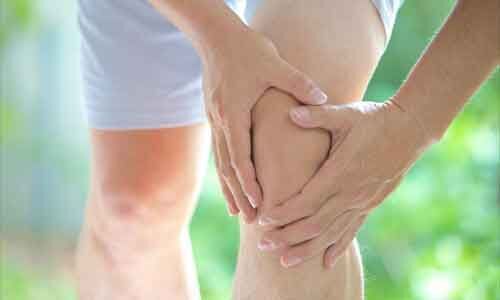- Home
- Medical news & Guidelines
- Anesthesiology
- Cardiology and CTVS
- Critical Care
- Dentistry
- Dermatology
- Diabetes and Endocrinology
- ENT
- Gastroenterology
- Medicine
- Nephrology
- Neurology
- Obstretics-Gynaecology
- Oncology
- Ophthalmology
- Orthopaedics
- Pediatrics-Neonatology
- Psychiatry
- Pulmonology
- Radiology
- Surgery
- Urology
- Laboratory Medicine
- Diet
- Nursing
- Paramedical
- Physiotherapy
- Health news
- Fact Check
- Bone Health Fact Check
- Brain Health Fact Check
- Cancer Related Fact Check
- Child Care Fact Check
- Dental and oral health fact check
- Diabetes and metabolic health fact check
- Diet and Nutrition Fact Check
- Eye and ENT Care Fact Check
- Fitness fact check
- Gut health fact check
- Heart health fact check
- Kidney health fact check
- Medical education fact check
- Men's health fact check
- Respiratory fact check
- Skin and hair care fact check
- Vaccine and Immunization fact check
- Women's health fact check
- AYUSH
- State News
- Andaman and Nicobar Islands
- Andhra Pradesh
- Arunachal Pradesh
- Assam
- Bihar
- Chandigarh
- Chattisgarh
- Dadra and Nagar Haveli
- Daman and Diu
- Delhi
- Goa
- Gujarat
- Haryana
- Himachal Pradesh
- Jammu & Kashmir
- Jharkhand
- Karnataka
- Kerala
- Ladakh
- Lakshadweep
- Madhya Pradesh
- Maharashtra
- Manipur
- Meghalaya
- Mizoram
- Nagaland
- Odisha
- Puducherry
- Punjab
- Rajasthan
- Sikkim
- Tamil Nadu
- Telangana
- Tripura
- Uttar Pradesh
- Uttrakhand
- West Bengal
- Medical Education
- Industry
Intra-Articular Injection of Amniotic Membrane Particulate may reduce Osteoarthritis pain

Researchers have recently observed that intra-articular injection of AM/UC particulate may be effective in alleviating pain and improving function in patients with moderate to severe knee OA, with the potential to delay total knee replacement for up to 12 months.
The study is published in the Orthopedic Research and Reviews Journal.
Knee osteoarthritis (OA) is a degenerative joint disease affecting nearly 14 million individuals in the United States alone. Given its high prevalence, knee OA is a leading cause of physical disability in the aging population. There are currently few effective conservative treatment modalities for symptomatic knee OA, none of which prevent disease progression.
Hence, authors Olivia G Mead and Leon P Mead carried out the study to evaluate the long-term benefit of a single injection of amniotic membrane/umbilical cord (AM/UC) particulate in patients with moderate to severe knee osteoarthritis (OA).
A single-center, investigator-initiated, retrospective study of patients who received intra-articular injection of 100 mg lyophilized and micronized AM/UC for radiographically confirmed, Kellgren–Lawrence (KL) grade 3 or 4 symptomatic knee OA. A total of 42 patients with KL grade 3 (36%) and 4 (64%) knee OA were included for analysis. Data regarding demographics, OA severity, comorbidities, treatment regimens, complications, and patient-reported outcomes were collected and assessed.
Patient Global Impression of Change (PGIC) was assessed on a 7-point scale, and Global Perceived Improvement (GPI), expressed as percent improvement relative to baseline, was used to further quantify the degree of symptomatic change. Clinically important response to treatment was assessed at 12 months using simplified OMERACT–OARSI responder criteria.
The following findings were noted-
a. Prior to injection, patient-rated pain was 6.6 ± 1.5 out of 10 (median: 7, range: 3– 10) despite prior treatment with oral/topical NSAIDs (62%) and intra-articular injection(s) of corticosteroids (57%) and/or hyaluronic acid (48%).
b. Twelve months following AM/UC injection, 31 patients (74%) reported significant clinical improvement via PGIC, and the OMERACT–OARSI treatment response rate was 81% (34/42).
c. GPI of pain and function was 62 ± 24%, 69 ± 27%, 69 ± 27%, and 64 ± 31% at 1, 3, 6, and 12 months, respectively.
d. Symptomatic improvement was maintained for an average duration of 12.1 ± 4.5 months (median: 12, range: 3– 22).
e. One patient developed swelling in the knee within 36 hours of injection.
f. No other adverse events or complications were reported.
Therefore, it was concluded that "Intra-articular injection of AM/UC particulate may be effective in alleviating pain and improving function in patients with moderate to severe knee OA, with the potential to delay total knee replacement for up to 12 months."
Dr. Nandita Mohan is a practicing pediatric dentist with more than 5 years of clinical work experience. Along with this, she is equally interested in keeping herself up to date about the latest developments in the field of medicine and dentistry which is the driving force for her to be in association with Medical Dialogues. She also has her name attached with many publications; both national and international. She has pursued her BDS from Rajiv Gandhi University of Health Sciences, Bangalore and later went to enter her dream specialty (MDS) in the Department of Pedodontics and Preventive Dentistry from Pt. B.D. Sharma University of Health Sciences. Through all the years of experience, her core interest in learning something new has never stopped. She can be contacted at editorial@medicaldialogues.in. Contact no. 011-43720751
Dr Kamal Kant Kohli-MBBS, DTCD- a chest specialist with more than 30 years of practice and a flair for writing clinical articles, Dr Kamal Kant Kohli joined Medical Dialogues as a Chief Editor of Medical News. Besides writing articles, as an editor, he proofreads and verifies all the medical content published on Medical Dialogues including those coming from journals, studies,medical conferences,guidelines etc. Email: drkohli@medicaldialogues.in. Contact no. 011-43720751


